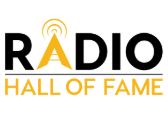According to the government-supported British Broadcasting Corp., “new, distinctive digital music stations” that will serve as “extensions” of BBC Radio 1, Radio 2 and Radio 3 are in the works.
While the BBC says these new offerings “look to delve deeper into specific genres and periods of music with context, curation and storytelling done in a way only the BBC can do,” they clearly are designed to compete directly with some of the UK’s most-listened-to commercial radio brands.
As BBC Director of Music Lorna Clarke sees it, “Our extensions for Radio 1, Radio 2 and Radio 3 will allow listeners to deep-dive into more pop and classical genres and periods of music they love the most, uniquely created by the BBC. They’ll get a deeper listening experience than what’s available elsewhere, hear brilliant storytelling through our extensive archive, and discover more music to love whatever their mood.”
The four unique stations will be on DAB+, which has become a successful digital radio hub in the UK as an option that was created not as an in-band, on-channel digital solution, which is HD Radio in the U.S.
The proliferation of DAB+ led Bauer, one of the nation’s key commercial broadcasters, to shift its Absolute Radio main Adult Rock channel away from its longtime 1215 MW signal, making it digital-only. Now, Absolute is seemingly under attack from the BBC. So are Global’s No. 1-rated Hot Adult Contemporary Heart and Bauer-owned rhythmic top 40 Kiss brands.
How so? The BBC outlined its proposal on Wednesday.
- A new Radio 1 extension would focus on Radio 1 music played in the 2000s and 2010s. This is largely a musical focus of Heart.
- An “expanded BBC Sounds Radio 1 Dance stream” — a sign that Kiss is in its sights
- A new Radio 2 extension providing a distinctive take on pop nostalgia, curating the story of pop music primarily from the 1950s, 1960s and 1970s by some of the people who shaped the cultural landscape at the time. This is seemingly designed to serve as a competitor to both the Gold and GHR (Greatest Hits Radio) brands.
- A new Radio 3 extension providing a classical music experience that helps listeners unwind, destress and escape the pressures of daily life. The Classic FM brand would seemingly be the commercial radio competitor.
There’s more. Future plans call for a retooling of BBC Radio 5 Sports Extra.
In order for the BBC to move forward, it must receive the relevant regulatory approvals from the government, including a Public Interest Test (PIT) for the proposal to launch the DAB+ stations. This is a process which the BBC will start in the coming weeks and is expected to run until the end of 2024. The BBC will also launch a PIT on the content offer of BBC Radio 5 Sports Extra. The plan is to allow existing sports related content from the BBC to be played on the station instead of a short marketing trail on constant loop when there are no live sports being broadcast.
Radiocentre, which represents commercial radio in the UK, called the BBC’s proposals “an attempt to directly imitate the recent success of commercial stations that already provide these genre stations following years of significant investment made by our sector.”




